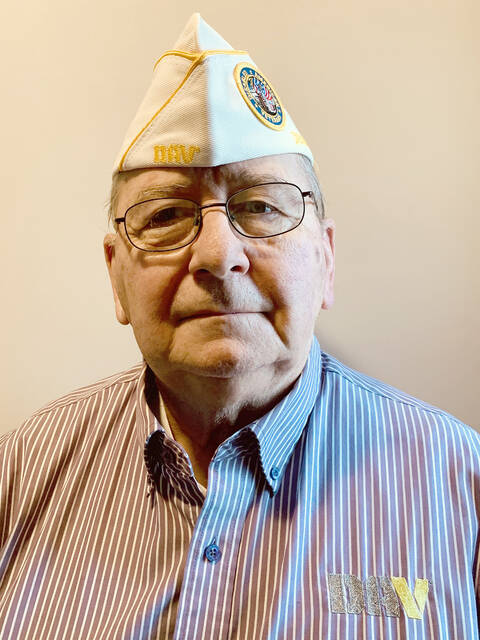On December 20, 2024, I reported that Congress had officially ended the 118th Congressional Session and many veterans-related bills were not enacted into law. If I were to grade the 118th Congressional Session, at this time, I would grade the 118th Session with an “F.”
However, on January 2, 2025, President Joseph Biden officially signed the Senator Elizabeth Dole 21st Century Veterans Healthcare and Benefits Improvement Act into law.
This new law was a combination of several veterans’ care proposals that were packaged into one Act that focused on home caregivers of aging and disabled veterans and bolstered services for homeless veterans.
“The men and women who have served have earned access to a VA that puts them — not government bureaucracy — at the center of its operations,” House Veterans Affairs Committee Chairman Mike Bost, said in a statement after President Biden signed the bill Thursday evening.
In my estimation, the new Law was the most comprehensive piece of veterans’ legislation approved by Congress in its 2023-24 session and combined several smaller measures on caregiver programs, job training, homelessness, community care, education benefits and more into one package.
“From expanding job training opportunities for transitioning service members and veterans, to improving mental health care for caregivers, to protecting veterans’ health care options for day-to-day services to more elderly care options, and much more in between,” said Chairman Bost, “I know this legislation will make a difference for veterans and their families.”
The main provision centered in the Law, which is named after former Senator and veterans caregiver advocate Elizebeth Dole, aims to make home nursing care more affordable for veterans by increasing the VA’s share of covering the costs of the care from 65% to 100%.
That provision is one of several in the bill related to caregivers’ programs that were long pushed by Veterans Service Organizations (VSOs) who state that disabled veterans should be able to live out their final days at home if they choose.
The Law allowed the VA to create “pilot” programs to improve community care administration and dental care approval. Funds were also provided through select Veterans Integrated Service networks (VISN) for veterans in rural and urban areas with high rates of suicide, substance abuse or accessibility challenges.
Funding will be provided for the Veteran Employment Through Technology Education Courses (VET TEC) Program to expand veteran high-tech career opportunities through September 30, 2027. This provision was sponsored by Representatives Brad Wenstrup and Juan Ciscomani.
This VET-TEC funding would allow up to 4,000 veterans to enroll in the VET-TEC Program each year.
This program places transitioning servicemembers and disabled veterans into training to learn information technology (IT) skills or to start or advance tech careers. The VET-TEC program was started as a five-year pilot.
The VA stopped accepting new applications in April 2024. The VET-TEC program has an eighty-four (84%) percent graduation rate for the 12,000 veterans who have already completed training.
Another provision of the enacted law would provide community mental health grants for family caregivers of certain veterans.
It would direct the Government Accountability Office (GAO) to examine mental health needs, options for support in VA and community care facilities and identifying accessibility and barriers to mental health support services.
My Opinion: At the last possible minute, the Senator Elizabeth Dole 21st Century Veterans Healthcare and Benefits Improvement Act was passed and was signed into law on January 2, 2025.
While everyone is commending our elected officials and the President for enacting this law, there were countless other veteran-related proposed bills which should have been enacted — but were not even brought up for a vote in the House of Representatives or the Senate.
For example, the Major Richard Star Act would have repealed the existing offset between earned military retired pay and VA disability compensation.
The Love Lives on Act would have eliminated the remarriage age for survivors in receipt of Dependency and Indemnity Compensation (DIC).
The What Works for Preventing Veteran Suicide Act would identify proven methods to prevent veteran suicide and then employ them.
The Governing Unaccredited Representatives Defrauding (GUARD) VA Benefits Act would stop “Claim Sharks” from swindling our veterans.
The Employing Veterans to Feed America Act would employ veterans in positions that relate to agriculture and conservation and nutrition activities.
The Disabled Veterans Tax Termination Act would authorize veterans with less than a rating of 50% to receive both disability pay and retired pay.
The VA Emergency Transportation Act would reimburse a veteran the cost of emergency transportation to a hospital emergency room (ER).
The Panama Canal Zone Veterans Act would assist veterans who were exposed to toxic airborne substances while serving in the Canal Zone.
While I certainly appreciate the passage and enactment of the Senator
Elizabeth Dole Act, there was so much more that could have been done for our veterans by the last Congressional Session. What happens for our veterans in the future is yet to be determined.
BioSketch: John Plahovinsak is a retired 32-year Army veteran, who served from 1967 to 1999. He serves on the Disabled American Veterans (DAV) Department of Ohio’s Legislative Committee and can be contacted at: [email protected].

